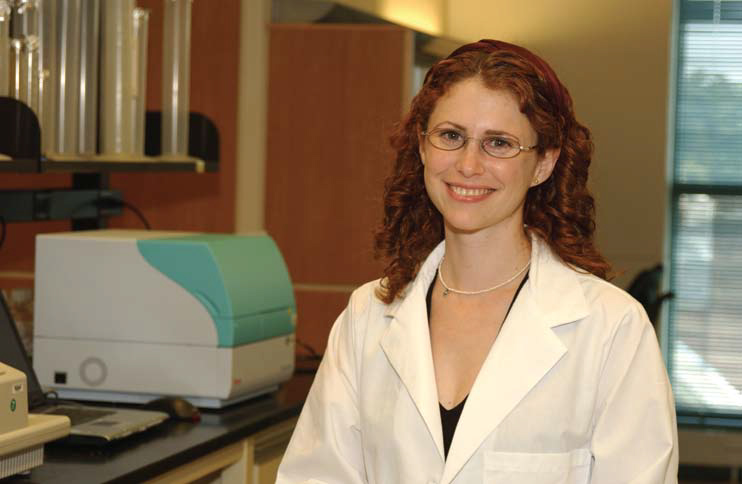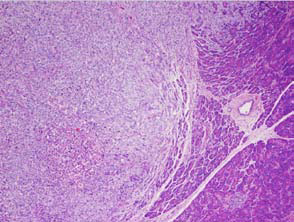
Prof. Yardena Samuels of the Weizmann Institute’s Department of Molecular Cell Biology uses the power of DNA sequencing to identify new groups of genetic mutations involved in the deadliest form of skin cancer, melanoma. One of her discoveries, a mutation found in nearly one-fifth of melanoma cases, was particularly encouraging because it is located in a gene already targeted by a drug approved for certain types of breast cancer, and preliminary clinical trials are underway.
In her postdoctoral work, Prof. Samuels discovered that the gene encoding the protein PI3Kalpha is mutated in 32 percent of colorectal cancer patients as well as many other human cancers, making it oneof the most highly mutated oncogenes. At the National Human Genome Research Institute at the National Institutes of Health in the U.S., she began to focus on melanoma, a deadly form of skin cancer. Cancer genomes are unstable, and melanoma is even more so. Melanoma originates in melanocytes whose genetic alterations enable them to proliferate and evade the body’s tumor surveillance mechanisms. It is accelerated by exposure to ultraviolet (UV) radiation from the sun.

Micrograph of metastatic melanoma cells that have invaded pancreatic tissue.
By the time a cancer is diagnosed, it has billions of cells carrying DNA abnormalities. Some of these cells are “drivers” that have a functional role in malignant proliferation, but many are “passengers” that have no function in tumorigenesis. Prof. Samuels is developing powerful genomics research strategies to separate the active drivers from the passengers, and to target them with potential therapeutic interventions. One of her major achievements was to help establish a tumor bank of carefully matched normal and tumor tissue samples from patients at three different major U.S. cancer centers. These samples provide the links between laboratory analysis and clinical data required for personalized cancer therapies. To look for potential treatments, she concentrates on mutations found in several major signal transduction pathways, searching for possible therapeutic targets.
Prof. Yardena Samuels was born in Tel Hashomer, and served in a medical unit of the Israel Defense Forces. She received her BSc from Cambridge University, UK, in 1993, and earned an MSc in immunology and cancer research at the Hebrew University of Jerusalem, Hadassah Medical School, in 1997. She completed a PhD in molecular cancer biology at the Ludwig Institute for Cancer Research, Imperial College, London, in 2002.
Prof. Samuels worked as a postdoctoral fellow at the Johns Hopkins University School of Medicine from 2003 to 2006. She was an assistant professor and independent investigator with the Cancer Genetics Branch of the National Human Genome Research Institute, U.S., and served as head of its Molecular Cancer Genetics Section. She joined the Department of Molecular Cell Biology at the Weizmann Institute of Science in 2012.
Prof. Samuels was awarded a European Molecular Biology Organization (EMBO) postdoctoral fellowship; won an Alfred Blalock Young Investigators’ Day Award at Johns Hopkins School of Medicine in 2006; and was named one of Genome Technology’s top 25 Young Investigators in 2009. Prof. Samuels is a member of several editorial boards, including the Journal of Investigative Dermatology, and is a member of the Scientific Program Committee of the largest cancer research conference, the AACR Annual Meeting 2013. She serves as a reviewer for a number of prestigious journals, including Science, Nature Genetics, Nature Methods, and Cancer Research.
